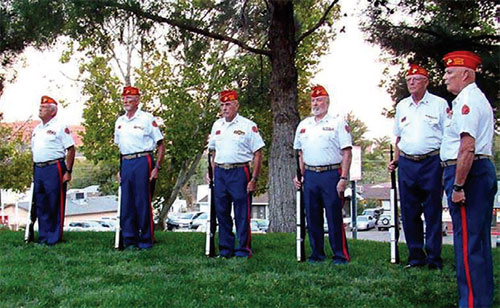By Brice Wallace
America’s military is legendarily strong, and those who move on from military service in Utah likewise have a substantial impact — on the state’s economy.
At the recent Utah Veteran Business Conference, Juliette Tennert, director of economic and public policy research at the Kem C. Gardner Policy Institute at the University of Utah, detailed a recent institute study that shows that Utah’s veterans in 2015 had a $1.9 billion total economic impact — a figure that accounted for 1.3 percent of the state’s GDP.
“So, I know 1.3 percent sounds like it’s not a lot, but I can tell you, as I track this stuff, any time I have something show up as a percent in any way, it’s sizable,” Tennert told the crowd. “It’s meaningful. It means something.”
The study also shows that Utah veteran earnings in 2015 totaled $1.4 billion, or 1.6 percent of the state’s figure, and veteran-related jobs totaled 24,480, or 1.3 percent.
“The fact that you’re showing up, even as a percent, speaks to the sizable impact that veterans are making on our economy,” she said.
The job total represents direct, indirect and induced jobs. For comparison, direct employment at Utah farms totaled 20,600, hotels employed 22,000, and the mining and oil and gas extraction industry had 16,000 workers.
Utah is known as an energy state, but “veterans support many times more than one of these industries that we’re very well-known for,” Tennert said.
The study — available at http://gardner.utah.edu — indicates that veterans accounted for 7.5 percent of the Utah population, with some rural parts of the state having levels above 10 percent. It also showed that Utah veterans are more likely than out-of-state counterparts to participate in the labor force — 56.6 percent in Utah, compared with 50.6 percent nationally — and have a lower unemployment rate, higher educational attainment and higher median household income than those counterparts.
“I think there’s definitely an age thing at play here,” Tennert said of the labor force participation rate. “Veterans here are going to be older than the general population in Utah. But still, if you compare veterans in Utah in labor force participation [with] 57 percent versus about 50 percent nationally, veterans in Utah are more likely to participate in the labor force than they are nationally.
“Some of that, again, is related to age, likely, but there is something about Utah and the actual economic opportunity here that draws our veterans into the labor market.”
The figures about veterans were part of a larger study about the defense industry’s economic impact in Utah. It showed that in 2015, the industry had a $9.2 billion impact, or 6.2 percent of the Utah GDP; earnings of $6.4 billion; and 109,000 jobs.
The largest component of the $9.2 billion was Hill Air Force Base, with veterans being the second-largest, at 21 percent of the total. The federal government spends money on veterans through education, employment and other services; Veterans Administration operations; and pension spending in communities, Tennert said. Pensions totaled $870 million, with VA operations at $540 million.
Those figures do not include wages earned by veterans outside the pension accounts, including those who own their own businesses. Tennert said non-pension income of military retirees in Utah is likely about $750 million.
Veteran-owned businesses are 9 percent or 10 percent of Utah’s total business population “and are just a key to our economy,” said Brian Garrett, chairman of the Utah Veteran-Owned Business Partnership, which hosted the conference.
Garrett had a tip for veterans who own businesses: Let people know “that you wore the cloth of this nation.” He cited a study indicating that the general public would prefer to do business with a veteran-owned company than a non-veteran company, by a 70 percent margin.
“As you look to grow your business, in a respectful way make sure you highlight the fact that you served our country,” Garrett told the crowd. “Don’t get too wrapped in the flag, because we know how offensive that can be. There’s nothing wrong with, in your branding materials, highlighting the fact that you’re a veteran-owned business. People pay attention to it.”








